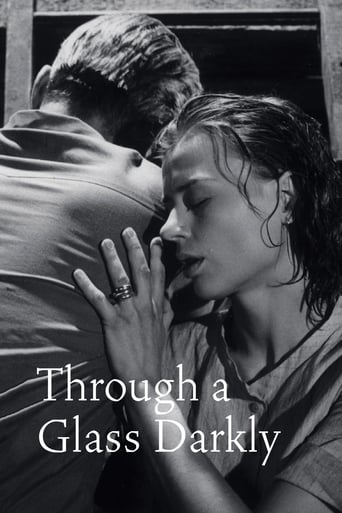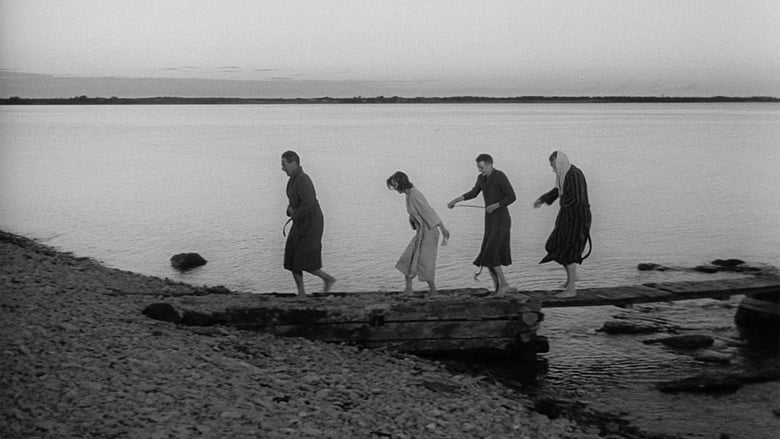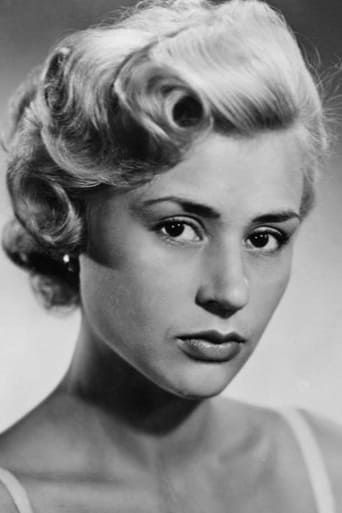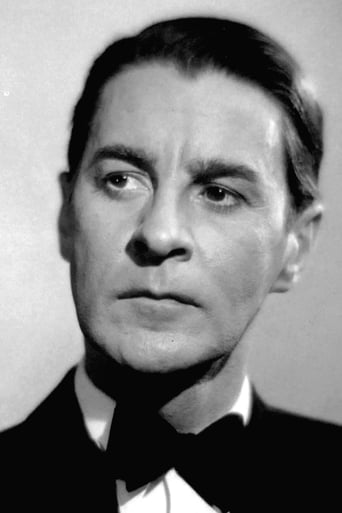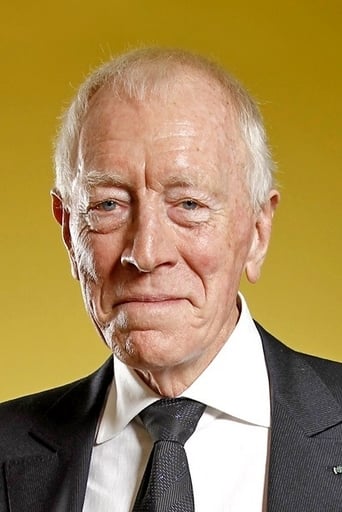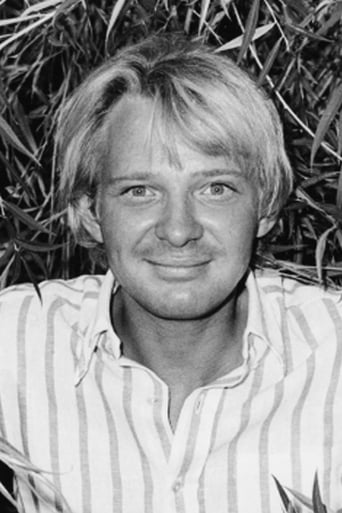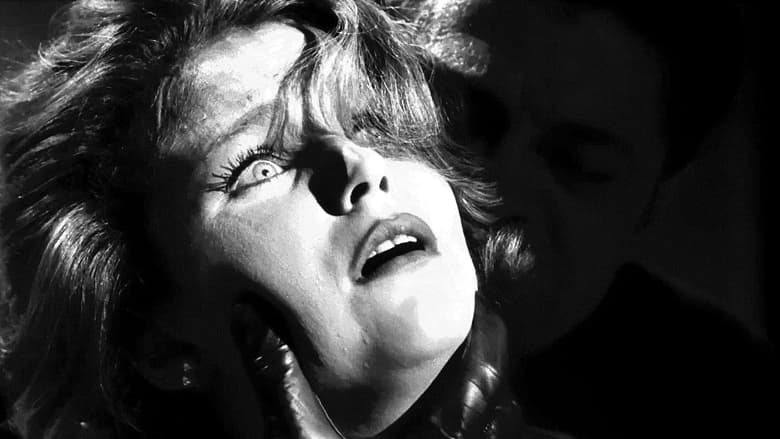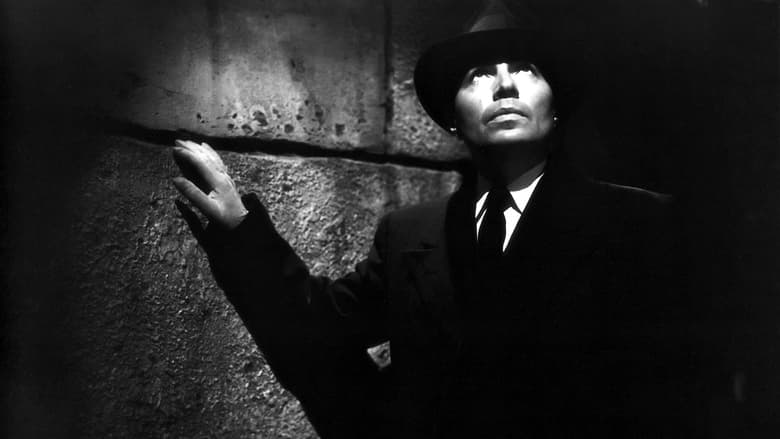Karin hopes to recover from her recent stay at a mental hospital by spending the summer at her family's cottage on a tiny island. Her husband, Martin, cares for her but is frustrated by her physical withdrawal. Her younger brother, Minus, is confused by Karin's vulnerability and his own budding sexuality. Their father, David, cannot overcome his haughty remoteness. Beset by visions, Karin descends further into madness.


Similar titles

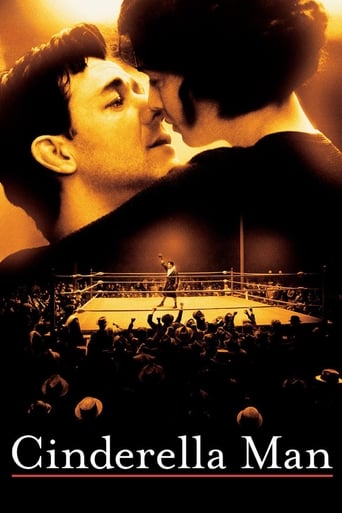
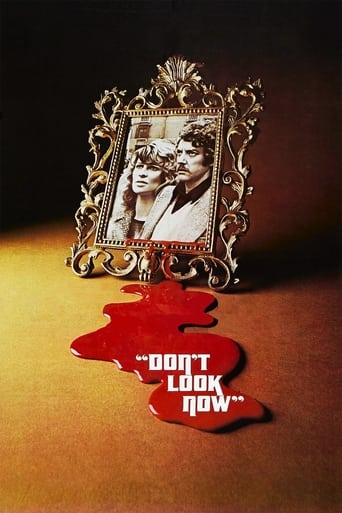
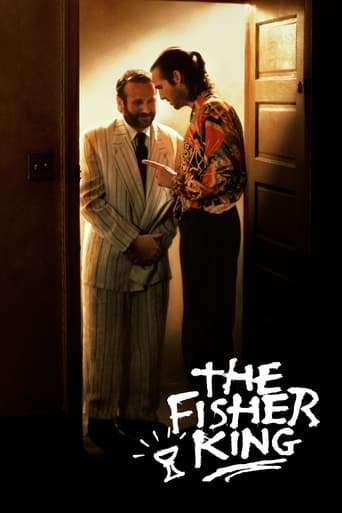
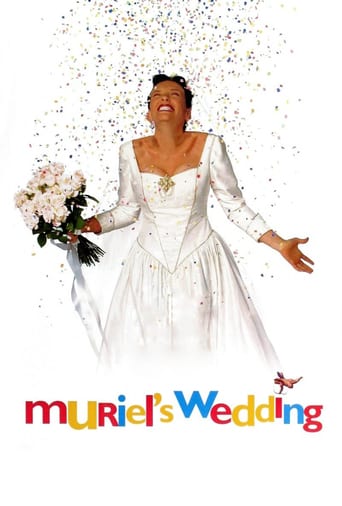
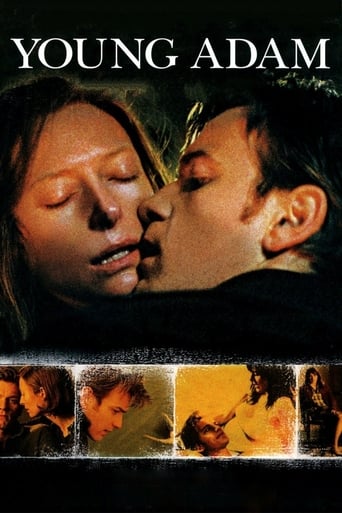
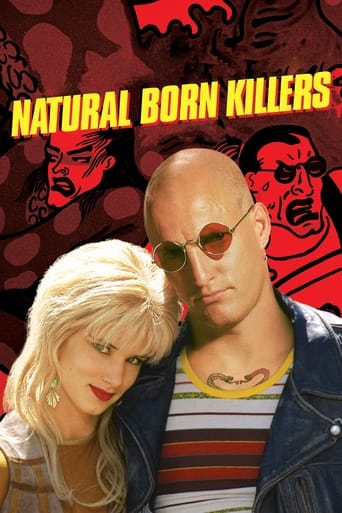
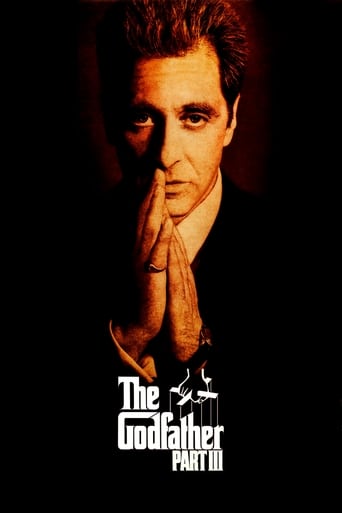
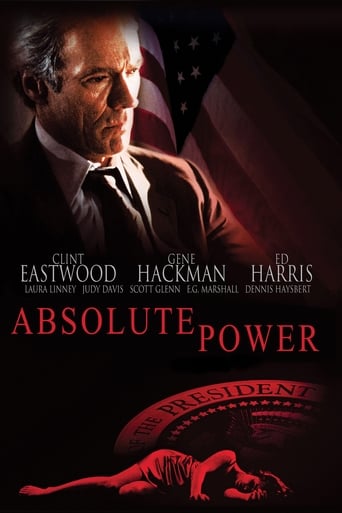
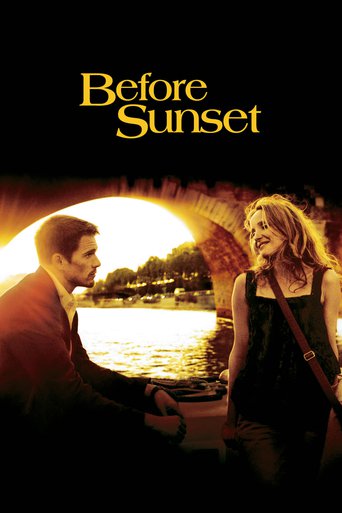
Reviews
Through A Glass Darkly is written and directed by Ingmar Bergman. It's the Third film on MUBI's retrospective jaunt through his filmography that i've so far watched. The film tells the story of Karin a young woman who's recovering on a small island with her husband and family after a stay in a mental hospital. As she tries to re-establish connections with her emotionally suppressed family, she begins to disconnect with reality and starts to believe she's being visited and spoken to by god.The film centres around four main characters, Karin(Harriet Andersson), her emotionally despondent father David(Gunnar Björnstrand), her husband Martin(Max Von Sydow) who's dealing with the inevitability of Karin's diagnosis not Improving. Finally Karin's younger brother Minus, whose going through adolescence questioning everything with no emotional support from his father.Through A Glass Darkly is a beautifully shot, serene piece of film- making. The film feels sedated in an idle state of tranquillity that carries through a tinge of melancholy. This makes for a fantastic look at the human mentality in all forms. As the audience delves deeper into what makes the characters tick, we look at their fears and Insecurities. This film is one of Bergman's tightest scripts. Every character is given equal screen time to be fleshed out and developed into characters with a- lot of depth. At only eighty five minutes long, the film runs at a brisk pace and flows naturally.The film gives an honest look at mental health, and how it effects Karin and those closest to her. The fact that this film was made at a time when approach to mental health wasn't given the seriousness it has in today's society, is all the more remarkable. Whilst this film film might not be in the upper echelons of Bergman's incredible filmography. It's quiet serenity and dreamlike sensibility gives this film a powerful radiance which makes Through A Glass Darkly essential viewing in Bergman's filmography.
. . . as THROUGH A GLASS DARKLY may be the closest thing a fan can get to spending a day with the notoriously film-shy J.D.'s surrogate Glass Family. Seventeen-year-old younger sibling Minus has written 12 plays and an opera so far this summer. Minus' counterpart, Plus (for all the voices in her head), a.k.a. older sister Karin, is home on her final furlough from the Nuthouse. For a few hours, Karin's novelist dad David, literature prof Hubbie Martin, and brother Minus manage to pooh-pooh Karin's increasingly psychotic symptoms. But soon, like "Blanche" in Tennessee Williams' STREETCAR, the family needs to entrust Karin to the "kindness of strangers" (if astronomically expensive mental health professionals can be classified as "kind"). On the family fishing boat a bit earlier, David asks Martin if he's ever wished that Karin were dead. (David feels guilty for selecting to reproduce with Karin's long-gone, insane mom, resulting in at least one doomed kid.) Martin replies something like "Heck no!" However, that's before Karin discovers that her long-awaited "God" is a stony-faced spider who tries to rape her. (With dads and deities like that, who needs Bill Cosby?)
Ingmar Bergman I love and admire very much, and Through a Glass Darkly is another example of a brilliant film. It may not be among Bergman's finest like The Seventh Seal, Wild Strawberries, Fanny and Alexander, Cries and Whispers and Persona, but there is much to love. The cinematography as ever from Sven Nykist looks atmospheric and beautiful at the same time and the scenery likewise. Bergman's direction is as ever accomplished, allowing us to be constantly engaged no matter how bleak the story is, and this is quite an unrelenting and I think incredibly moving story. His summer images are far from the optimistic ones we are used to, but bleaker and more searching. Considering the story though, this approach was necessary I think. The music is as ever haunting, and the film is very thought-provoking, which has always been the case actually with the written quality of Bergman's films. Of the acting, Harriet Andersson has a role that is quite impossible, but she is just outstanding in it. Max Von Sydow as ever impresses with his knowing face and commanding presence, and Gunner Bjornstrand gives a performance that requires him to be morbidly curious and helpless than his somewhat droll one in The Seventh Seal and he excels here. In a nutshell, brilliant and definitely worth watching. 9/10 Bethany Cox
The first film in director Ingmar Bergman's "faith trilogy" - to be completed several years later with "Winter Light" (1962) and "Silence" (1963) - "Through A Glass Darkly" (1961) stars Harriet Andersson as Karin, a young woman who suffers from a mental illness. This illness resembles schizophrenia, but Bergman cruelly calls it "the disease of faith", a symptom of Karin's theism.Karin habitually sees visions of God, but her visions are warped to the point of parody. Her God takes the form of a salacious spider, and later a helicopter which ferries her sputtering body to a mental hospital. Supporting the increasingly deranged Karin are three men: Karin's brother, husband and father. These men embody three very different approaches to "spirituality" or "love", each of which is contrasted with Karin's more Christian outlook. The father, for example, is a cynic, depressive and writer, and is increasingly detached from a family he loves only insofar as they provide material for his increasingly morbid novels. The husband, in contrast, is a man of science, but his rationality proves unable to cure his wife. Meanwhile, Karin's brother is a naive, budding play-write, who develops an incestuous, sexual attraction toward her. As with Bergman's other "faith" films, Karin's beliefs are mocked for being hollow and borne of delusions, but shown to be far less horrific than those of the apathetic, post faith characters who surround her.The film ends with a macabre parody of romantic, spiritual and familial love. Here, Karin's embrace by God is ushered in by incestuous sex with her brother. An angelic helicopter then lifts her, not up into heaven, but toward a psychiatric ward. Afterwards, Karin's father tells his son that the family's love for one another is proof enough of the existence of God. His words are a self defence mechanism, designed to assuage the pain of watching his family disintegrate. The son, so starved of affection and attention, then accepts the father's drivel. By the film's end, Bergman has shown not only how a love of God is often the displacement of the love we should show for one another, but how even the staunchest unbelievers summon "Gods" to bolster their fragility.Like "Through A Glass Darkly, "Winter Light", the second film in Bergman's trilogy, takes place in a cold, remote part of Sweden. Bergman's tone is austere and chilling throughout, all skies, oceans, rivers, buildings and vistas seemingly bleached and robbed of all depth. Attuned to this suffocating "nothingness" is Tomas Ericsson, a village pastor (named after Bergman's own father, a priest called Erik) who has lost his faith but continues to tend to his dwindling congregation. If Bergman's "faith trilogy" traces a movement away from shaky belief to profound existential abandonment, then "Winter Light" represents the mid-point of this journey: shaky disbelief, God's light wintry, wispy and uncertain.And so Bergman paints Tomas as a man of, not only uncertainty, but contradictions. Tomas uses his position of "divine authority" to absolve himself of blame when one member of his congregation commits suicide, whilst using his certainty that God doesn't exist, and therefore also absolute morality, as an excuse for his treatment of several woman. But the problem, the film goes on to show, isn't that God does or does not exist, but that he has always been summoned and shunted aside whenever it best suits man."Winter Light" ended with two atheists in a church, waiting for God to speak. The silence that greets them becomes the basis of Bergman's "The Silence", arguably the greatest film in his trilogy (and the precursor to his traumatising "Cries and Whispers"). Making heavy use of sound effects and little use of dialogue, the film centres on Anna, Ester and Johan, a young boy. Whether these characters are related (Lovers? Family? Friends?) is never clarified.It isn't long before Bergman is alluding to off-screen wars (expressionistic shots of tanks and war machines) and the on-screen mortality of his characters (Ester coughs blood; she's dying from Tuberculosis), all forms of human suffering which for centuries have cast doubt on the existence of God. The rest of the film then largely takes place in a hotel, which Johan explores whilst Ester remains ill and bed bound. During his explorations he will stumble across various mundane yet disturbing sights and sounds. Think the fan which is placed at Ester's bedside, ostensibly for her comfort, but with each blade spin being a reminder of helplessness. Meanwhile, the click of Johan's toy pistol echoes shadowy military vehicles, whilst typewriters and clocks sing songs of death, each tick-tock bring one closer to oblivion. There's a certain, sickening "finality" to "The Silence's" "noise".Most horrific, though, is the disguised contempt these characters have for one another, despite their seemingly unwavering love. Ester despises Anna for her good health, for the carnal pleasures she indulges in, whilst Anna apathetically views Ester as a constant inconvenience. It's a love-hate tug of war which little Johan is being indoctrinated in.And so more horrific than God's silence is our own silence, our inability to both truly connect with another human being, and to know completely what the other is thinking. Despite Ester and Anna's rituals of human connection, they remain forever apart and forever alone. Ester herself represents the "Mind", a figure of intellect and rationality (linked to Bach, is multilingual etc), while Anna represents the "Body", Bergman stressing her bodily routines (bathes, eats, sex, is facile etc). What the film shows is that Pure Reason eventually withers the body, whilst carnality, unennboled by reason, ultimately leads to similar self destruction. Bergman's cure is the film's final word: "spirit". He closes on a powerful shot of Johan, the boy's future, and dilemma, ours.8/10 – Worth one viewing. The trilogy's cinematography, by Sven Nykvist, suffocates.
